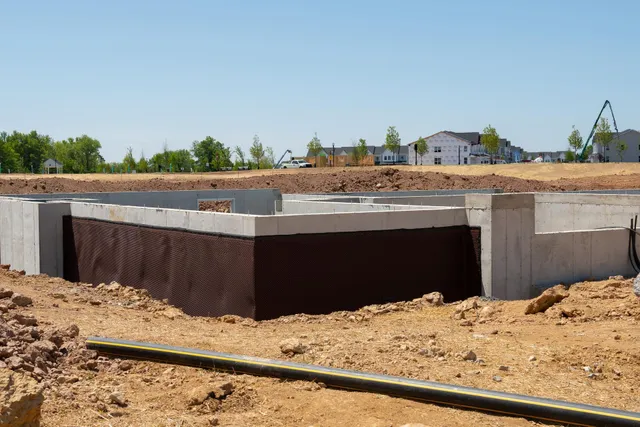Concrete Foundations 101: What Every Property Owner Should Know

No matter how beautiful a home or building looks, it’s only as strong as the foundation it’s built on. A properly installed concrete foundation is the first step in ensuring the long-term safety, performance, and value of any residential or commercial structure.
At CBD Concrete, we specialize in building strong starts for our clients. Here’s what every property owner should understand about concrete foundations—before breaking ground.
1. What Is a Concrete Foundation?
A concrete foundation is the structural base of a building that transfers the load from the structure above to the ground below. It's engineered to support the entire weight of the building, resist moisture, and provide a level, stable surface.
2. Types of Concrete Foundations
Slab-on-Grade
- A single poured slab, typically 4–6 inches thick
- Ideal for warm climates like Texas
- Cost-effective with minimal excavation
- Used for homes, garages, and retail spaces
T-Shaped Foundations
- Traditional method used where ground freezes
- Features a footing below the frost line and walls above
- Rare in warmer regions but useful in specific commercial applications
Crawl Space Foundations
- Slightly raised foundation with access beneath
- Offers easy access to plumbing or electrical systems
- Better moisture control for certain site conditions
Basement Foundations (less common in Texas)
- Deep foundation with a full lower level
- Requires substantial excavation and drainage systems
3. Benefits of Concrete Foundations
- Durability: Resists rot, pests, moisture, and settling
- Load-Bearing Strength: Supports multi-level homes and heavy structures
- Moisture Protection: When properly sealed, helps prevent mold or water intrusion
- Longevity: Concrete foundations can last 50+ years with minimal maintenance
4. Key Considerations Before Installing a Foundation
Soil Conditions
- Clay, sand, and loamy soils each behave differently under pressure
- A professional soil test ensures the right type of foundation is chosen
Grading & Drainage
- The site must slope away from the foundation to prevent water buildup
Reinforcement
- Rebar or wire mesh is used to strengthen the slab and prevent cracking
Permits & Inspections
- Foundation work must meet local building codes and may require permits and inspections
5. Common Foundation Additions and Modifications
Already have a structure and want to add on? CBD Concrete also specializes in:
- Foundation additions for home expansions or garage builds
- Structural tie-ins to connect new and existing slabs
- Foundation repairs for settling, cracks, or moisture issues
6. What to Expect During the Process
CBD Concrete’s approach to foundation work includes:
- Site evaluation and planning
- Excavation and grading
- Formwork and rebar installation
- Concrete pour and leveling
- Curing to allow proper hardening
- Inspection and final walkthrough
We work closely with builders, homeowners, and commercial developers to ensure the foundation meets every spec and code.

Planning a new build or addition? Start strong with a reliable foundation. Call CBD Concrete at (682) 246-1657 for a free consultation today!








